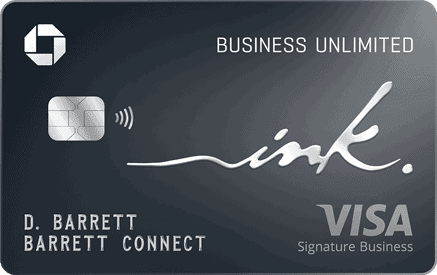
10xTravel is part of an affiliate sales network and receives compensation for sending traffic to partner sites, such as CreditCards.com. This compensation may impact how and where links appear on this site. This site does not include all financial companies or all available financial offers. Terms apply to American Express benefits and offers. Enrollment may be required for select American Express benefits and offers. Visit americanexpress.com to learn more. All values of Membership Rewards are assigned based on the assumption, experience and opinions of the 10xTravel team and represent an estimate and not an actual value of points. Estimated value is not a fixed value and may not be the typical value enjoyed by card members.
Note: Some of the offers mentioned below may have changed or may no longer be available. The content on this page is accurate as of the posting date; however, some of our partner offers may have expired. You can view current offers here.
By signing up for a business credit card, you can gain access to a ton of different features that can help you organize and improve your financial situation.
You can build your commercial credit, separate your business spending from your personal spending, control employee business spending and much more. Additionally, signing up for a business credit card can also be a great way to earn a welcome bonus and quickly boost your points balance.
So, if you’re a small-business owner and you don’t already have a business credit card in your wallet, you should definitely look into getting one. Even if you don’t think of yourself as a small-business owner, you may still be able to qualify for a business credit card.
Most credit card issuers employ a broad definition of “small-business owner” that includes anyone who operates their own business, works in the gig economy, has a side hustle or even babysits their neighbors’ children.
Let’s look at why you might want to open a business credit card, who can qualify for it, how to apply for a business credit card and whether signing up for one affects your personal credit score.
This article is the first in a two-part series about how business credit cards can improve your credit card strategy. So, make sure you tune in tomorrow for the second installment in this series.

What Are the Benefits of a Business Credit Card?
Before we discuss who can get approved for a business credit card and the implications of getting one, let’s discuss why you might want it in the first place. While a business credit card functions essentially the same way as a personal credit card on a transaction-to-transaction basis, there are several key differences that can make a large difference.
Here are a few of the benefits of a business credit card that you should be aware of.
Keep Your Personal and Business Finances Separate
Using a personal credit card for personal spending and a business credit card for business expenses can save you a ton of time and help you better run your business. Charging these expenses to separate cards means you won’t have to comb through your statements and separate them manually when tax season comes around. Plus, by keeping all of your business expenses in one account, you’ll be able to easily analyze them and gain insights on your business.
Avoid Damaging Your Personal Credit
Most business credit cards report activity only to business credit bureaus (and therefore don’t affect your personal credit score), unless your account is seriously delinquent. So, by charging all of your business expenses to a business credit card, you can avoid affecting your personal credit with your business spending.
Improve Your Business Credit Rating
Businesses have their own credit ratings that have a significant effect on credit availability and interest rates. So, by signing up for a business credit card and using it responsibly, you can improve your business’s ability to get long-term credit (such as loans) in the future.
Control Employee Spending
Most business credit cards allow you to add employee cards to your account for free, which allows employees to make purchases and earn rewards for your account. Most of these business credit cards also allow you to set personalized spending limits for each employee, giving you better control over your expenses.
Access to a Credit Line for Business Expenses
If you need to find financing to support your business activities in the short term (whether it’s purchasing assets, covering start-up costs or servicing existing debts), getting approved for a business credit card is often far easier than securing a business loan. Thus, business credit cards are a great way to quickly get access to a credit line for your business.
Business-Targeted Spending Bonuses
While personal credit cards tend to offer elevated spending bonuses in personal categories, such as travel, dining and groceries, any business credit cards will offer spending bonuses for business-related categories, such as office supply stores, search engine and social media marketing, construction materials, electronics retailers and much more. So, finding the right business credit card to match your business’s expenses can help you maximize your rewards earnings.
As you can see, there are a lot of reasons why you might want to sign up for a business credit card, regardless of whether you own a large company with hundreds of employees or you’re a sole proprietor.

How Do I Qualify for a Business Credit Card?
To qualify for a business credit card, you need to be a small-business owner. However, as previously mentioned, the definition of a “small-business owner” used by most credit card issuers is inclusive. In most cases, if you engage in any money-making activity for yourself (with or without employees on your payroll), you can qualify for a business credit card.
For most issuers, those who can qualify for a business credit card include:
- Self-employed business owners
- Freelancers and independent contractors
- Gig economy workers
If your business or side hustle falls into one of the aforementioned three categories, chances are you’ll be able to qualify for a business credit card.
However, you should be aware that most business credit cards also require you to have an excellent personal credit score (a FICO score of 690 or higher) and have some proof of personal income. So, if you meet those qualifications and you have engaged in some money-making activity for yourself, you should be able to qualify for a business credit card without a fully established business.
Self-Employed Business Owners
Being a self-employed business owner means that you work for yourself and pay yourself out of the profits of a business that you operate rather than working for an employer and collecting a salary or wage. Self-employed business owners also tend to set their own hours and provide goods or services to the public.
Here are some examples of individuals that may be considered self-employed business owners:
- Vacation rental hosts (such as Airbnb or Vrbo hosts)
- Notaries
- Farmers
- Independent caterers or home chefs
- Online sellers (such as eBay, Craigslist or Facebook Marketplace sellers)
- Event planners
- Tutors
- Self-employed investment managers
- YouTubers
- Twitch streamers
- Social media influencers
Essentially, if you engage in any business for yourself and your goods or services are marketed to the general public or a single client, then you can be considered a self-employed business owner and qualify for most business credit cards.
Freelancers and Independent Contractors
Freelancers and independent contractors are also types of self-employed business owners. However, these types of business owners are typically hired on contract to provide specific goods or services. Unlike other types of self-employed business owners, these professionals perform a specific service as defined by their hirer. Nonetheless, freelancers and independent contractors are still eligible for business credit cards.
Here are some examples of individuals that may be considered freelancers or independent contractors:
- Realtors
- Property managers
- Builders
- Plumbers
- Electricians
- Web developers
- Graphic designers
- Online language teachers
- Photographers
Virtually any work that you do on a contractual basis qualifies you as a freelancer or independent contractor, which means you can qualify for a business credit card (so long as you have an excellent credit score and proof of some personal income).
Gig Economy Workers
Similar to freelancers, gig economy workers are also hired contractually to complete a specific service or provide a specific good. However, the time spent completing a contract is typically much shorter for gig economy workers, often taking just hours or minutes. These professionals are also eligible to be approved for a business credit card.
Here are some examples of individuals that may be considered gig economy workers:
- Ride-hailing service drivers (such as Uber and Lyft drivers)
- Food-delivery drivers (such as DoorDash and Uber Eats drivers)
- Tax accountants
- Landscapers
- Personal trainers
- Dog walkers
- Babysitters
- Housecleaners
- Music teachers
If you engage in any of the aforementioned activities (as well as many others), you can be considered a gig economy worker and qualify for a business credit card.

How Do I Apply for a Business Credit Card?
Of course, before applying for a business credit card, you should determine which business credit card is going to be the right one for you.
There are many different features among business credit cards, including annual fees, annual percentage rates (APRs), welcome bonuses, spending bonuses, rewards type (cash back or rewards points), other benefits and more. And all of these features should be considered when determining the best business credit card for you.
As already stated, you’ll need to have an excellent credit score to qualify for most business credit cards. However, if your credit score isn’t currently in the excellent range, you may still be able to qualify for a secured business credit card.
Secured credit cards require you to put down a deposit to gain access to a line of credit. However, they can be a great way to start building business credit with a poor credit score and eventually get approved for a traditional business credit card.
Once you’ve determined the best business credit card for your needs, then you’ll need to go to the issuer’s website and actually apply for that card. You should have some information at the ready before you start your application. Here are some of the pieces of information you may be asked to provide about your business:
- Business name: If you own a registered business organization, such as a limited liability corporation (LLC), partnership or corporation, then you should provide the legal name of that business. If not, simply input your own name.
- Business address: If your business is legally registered at a physical address (an office address, for example), you should provide that address. If not, you can input your home address.
- Type of business: If you don’t know the type of business that you operate or you haven’t legally registered your business, then you likely operate a sole proprietorship.
- Tax identification number: If you’ve been provided an employer identification number (EIN) by the IRS, then provide that number. Otherwise, you can simply input your Social Security number.
- Annual business revenue: Estimate the amount of money your business brings in annually before expenses.
Age of business: Try to remember the total number of years that your business has been operational. - Number of employees: As far as credit card companies are concerned, you’re an employee of your own business. So, you should write the No. 1 if you’re the only person in your business.
- Business description: Describe the industry and business activities in which your business engages.
There’s no need to make up a business name if you don’t have one or inflate your business revenue if your business isn’t pulling in any money yet. You can still be approved for a business credit card even if you haven’t legally registered a business and your business hasn’t made any money yet. In that case, you can simply list $0 as your annual business revenue.
In addition to these business details, you’ll be asked to provide certain personal information as well, including your name, date of birth, Social Security number and annual personal income. In general, your personal information and history is more a determining factor for whether you’ll be approved for a business credit card than your business information.
Once you’ve submitted your application, your application may be approved or denied within seconds or minutes if your information is easily verified. However, the application process may also take several days and you may even be asked to provide additional information to help the issuer verify your identity or income.

Does a Business Credit Card Impact My Credit Score?
When applying for a business credit card, it’s important to consider how it will affect your personal credit score. In most cases, applying for a business credit card will affect your personal credit score whether you’re approved or denied. In general, business credit cards will affect your personal credit score in two ways: hard inquiries and credit reporting.
Hard Inquiries
Regardless of whether or not you’re approved, applying for a business credit card almost always involves a hard inquiry into your personal credit history.
A hard inquiry is when a lender requests to look at your credit file to determine your likelihood to repay your debt. Regardless of what kind of debt you’re applying for, hard inquiries always result in a small, temporary decrease in your credit score.
The dip in your credit score that results from a hard inquiry is usually between three and seven points but can be as much as 10 points. This temporary decrease in your credit score will usually last only about one year but may last as long as two years.
Credit Reporting
Any business credit card that you have will affect your business credit score, which is independent of your personal credit score. Your business credit score determines whether lenders will extend credit to your business and the interest rates your business will get. However, it won’t affect your ability to get credit as an individual.
Certain credit card issuers will also report all activity from your business credit card to personal credit bureaus (meaning that it will affect your personal credit score). Certain issuers will report only negative activity from your business credit card to personal credit bureaus. And certain issuers will report your business credit card activity to personal credit bureaus only if your account is seriously delinquent.
The following chart explains the business credit card information that major issuers report to personal credit bureaus:
| Business credit card information reported to personal credit bureaus | |
|---|---|
| American Express | • Only negative activity |
| Bank of America | • None |
| Capital One | • All activity for most business credit cards • Capital One Spark 2% Cash Plus for Business Card and Capital One Venture X Business report to personal credit bureaus only if the account is not in good standing. |
| Chase | • All information but only if the account is seriously delinquent |
| Citibank | • None |
| Discover | • All activity for all business credit cards |
| U.S. Bank | • All information but only if the account is seriously delinquent |
| Wells Fargo | • None |
As you can see, the only credit card issuer that reports all information, whether or not your account is in good standing, is Capital One (with the exceptions of the Capital One Spark Cash for Business Card and the Capital One Venture X Business card). This means Capital One business credit cards are the only business credit cards that can actually have a positive effect on your personal credit score.
Activity on business credit cards from Bank of America, Citibank or Wells Fargo will never affect your personal credit score. And activity on business credit cards from American Express, Chase or U.S. Bank can affect your personal credit score only in a negative way.
If you’re concerned that you might slip up with your business credit, you may want to limit yourself to business credit cards that don’t report to personal credit bureaus to ensure that your personal credit score won’t take a hit.
Does a Business Credit Card Impact My 5/24 Count?
If you plan on applying for a new Chase credit card in the future, then you may be wondering whether applying for a new business card will affect your 5/24 status with Chase. This unwritten rule states that to be approved for a new Chase credit card, you can’t have opened more than five new credit cards in the past 24 months.
This rule applies when you’re opening almost any Chase-issued card, including co-branded cards, such as Marriott Bonvoy cards, Southwest Rapid Rewards cards and United MileagePlus cards.
So, before you apply for a new Chase credit card, you should always check your 5/24 status if you’re unsure. To do so, you can get a free credit report from one of the three major credit reporting bureaus (Equifax, Experian and TransUnion) and check how many credit cards you’ve opened in the past 24 months.
However, it’s important to note that not all credit cards count toward your 5/24 status. While almost all personal credit cards, including credit cards from retail stores, affect your 5/24 status, many business credit cards do not count towards your 5/24 score.
In general, if a business credit card doesn’t report activity to personal credit bureaus, then it’s likely that it also won’t affect your 5/24 status. To see which business credit cards report to personal credit bureaus, you can reference the table in the section above.
So, if you’ve applied for a business credit card from Bank of America, Citi or Wells Fargo in the past 24 months, then it will certainly not affect your 5/24 score. If you’ve applied for a business credit card from TD Bank, Capital One (expect the Spark 2% Cash Plus or Venture X Business cards) or Discover, then it will certainly affect your 5/24 score. And, if you’ve applied for a business credit card from American Express, Chase or U.S. Bank, it will probably only affect your 5/24 score if you miss payments.
The Bottom Line
Signing up for a business credit card can help your financial situation in a myriad of ways. With certain credit card issuers, it’s a way of protecting your personal credit score if your business goes into debt. If used responsibly, business credit cards can help you increase your business credit score, which can be important when applying for long-term credit in the future. Plus, business credit cards can help you keep your expenses organized and earn rewards while doing so.
Although you can get approved for a business credit card only if you’re a small-business owner, the definition of a “small-business owner” used by most credit card issuers includes freelancers, gig economy workers and sole proprietors. So, even if you don’t think of yourself as a small-business owner, if you engage in almost any money-making activity for yourself, there’s a pretty good chance you can qualify for a business credit card.
Before you submit an application for a business credit card, there are some things you should consider.
First off, certain business credit cards can have an effect on your personal credit score. Some business credit cards can also affect your 5/24 score, which affects your ability to get approved for a new Chase-issued personal credit card. Finally, business credit cards have different fees, bonuses and perks and you should do some research to find out which is the best one for your business.
New to the world of points and miles? The Chase Sapphire Preferred® Card is the best card to start with.
With a bonus of 75,000 bonus points after you spend $5,000 on purchases in the first 3 months from account opening. , 5x points on travel booked through the Chase Travel Portal and 3x points on restaurants, streaming services, and online groceries (excluding Target, Walmart, and wholesale clubs), this card truly cannot be beat for getting started!
Editors Note: Opinions expressed here are author’s alone, not those of any bank, credit card issuer, hotel, airline, or other entity. This content has not been reviewed, approved or otherwise endorsed by any of the entities included within the post.









